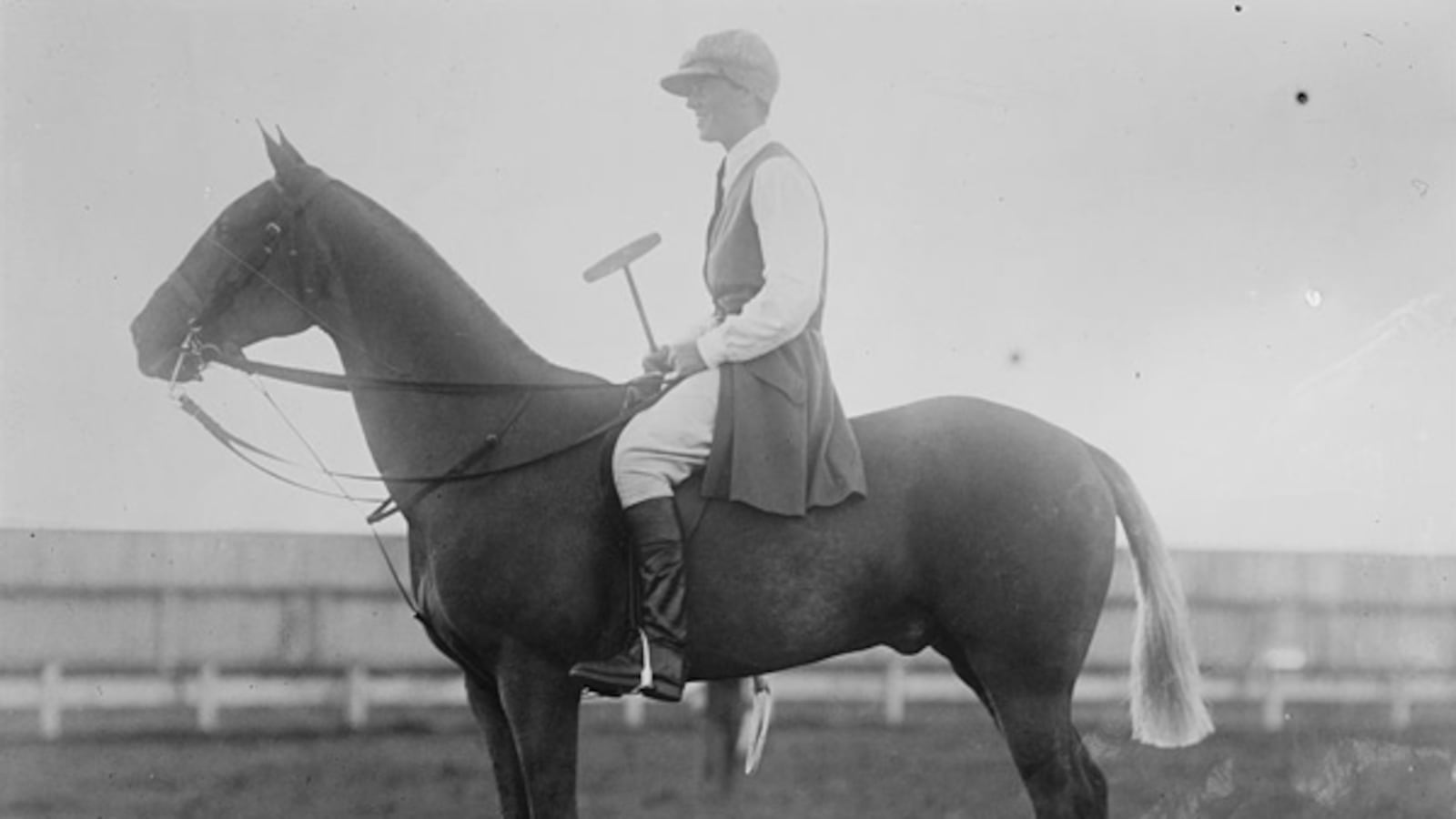Imagine a world in which every action is governed by fossilized customs. If you break the rules, you risk scandal and disgrace. For those at the top, it is an attractive world, leisurely paced and sumptuously tailored, with starched collars, sunbonnets, and white gloves. Men run things. They command the resources and enjoy the benefits of education and competitive sports that train them to become businessmen and statesmen. Women are sheltered by these men and counseled by educators and doctors to live modestly and cautiously, lest they tax their fragile emotional and physical well-being. They own fainting couches. They cannot vote. Then imagine a girl, Eleonora Sears, bursting with vigor and athletic skill and with the determination to never be a bit player in her own life—and you have all the elements for a monumental struggle that reached its zenith 40 years ago this month, with the arrival of Title IX, the law that opened up academic and athletic opportunities for women that are comparable to those that have always been available to men.

Eleonora Sears died in 1968 at age 86, four years before Title IX was enacted, but she firmly planted its flag, and no one better demonstrated and promoted the rightness of this empowering legislation than the sports star who earned the nickname “The Universal Female Athlete.”
Her name is now enshrined in many Halls of Fame, including those for tennis, squash, and horse-show jumping, but such honors were beyond imagining when Eleonora “Eleo” Sears began her very American quest to choose and control her own destiny. Born to privilege as the daughter of one of Boston’s founding families and a great-great granddaughter of Thomas Jefferson, she recognized at an early age the unjustness of the limits she faced solely because of her gender, and she felt the pain of being automatically discounted and excluded. Her sexual identity as a lesbian also placed her at odds with the social mainstream and added fuel to her determination to succeed on her own terms. She marshaled the awesome forces of her resolve and her physical skill in a lifelong quest to topple a destructive double standard.
Eleo Sears was condemned from pulpits and town squares for wearing trousers that gave her the ease of movement to compete effectively in the sports she loved—and, she concluded, if such attire infuriated the moral arbiters of her day, then so much the better. She honed her innate talent and, with refreshing humor and a firm refusal to take “no” for an answer, she became the first woman to play polo on a men’s team. She became a five-time national doubles tennis champion and the first female national squash champion. She convinced Harvard officials to open their squash courts to other women players; she founded the Women’s Squash Racquets Association, and she coached the U.S. Women’s International Squash Team. She was also a long-distance swimmer; she boxed and played golf; she ice-skated; was a crack shot with a rifle, and raced yachts. She excelled in 19 different sports, making her America’s most versatile female athlete.
If you ever wanted to see Eleo spring into action, you just needed to bet against her. Such a bet in 1912 set her off on a 110-mile hike down the California coast. Other bets in later years sparked a series of record-setting hikes between Boston, Newport, and Providence, which gained her national attention and inspired walking contests among men and women across the country. The New York Times, in a 1925 editorial, praised Eleo as America’s valiant pedestrienne who was perfecting “the one universal art to save the world from physical degeneracy.”

Eleo’s tradition-shattering exploits were not confined to sports arenas. She was one of the first women to fly an airplane and drive an automobile, and in 1909, she became the first woman on record to fight a speeding ticket. She explored the ocean’s depths in a submarine. Clearly not a woman to shy away from controversy, she got herself arrested in 1910 for smoking in the lobby of Boston’s Copley Square Hotel, not because she had any fondness for cigarettes, but because women were prohibited from smoking there, while men could do so undisturbed.
You could never get Eleo to trumpet her own achievements, but she was always quick to praise others whose talent and determination brought them success. She was a true sportsman. Throughout her life, Eleo sought out and embraced challenges, and in doing so, she opened the universe of athletic competition to women and showed them that if they could dream it, they could do it. Life magazine, in its bicentennial edition, included Eleonora Sears in their list of the most remarkable American women in the past 200 years.
Today, more than 3 million girls are competing in high school athletics. The collateral benefits of such competition extend beyond sports. Women are enrolling in and graduating from college in higher numbers than men and earning more of the advanced degrees. Lessons learned on the playing field—the necessity of training and discipline, the strategies that bring individual and group success, the ability to accept winning and losing with grace—have strengthened women’s contributions as they increasingly shape decisions in business and politics.

On this 40th anniversary of Title IX, it is important to remember that the case for female equality has been built over long years by many hands and stout hearts. Because of their tireless efforts, we live in a hopeful time, a time when women are welcomed and encouraged to contribute to our nation and our world according to their desires and talents. It is a very good time to salute Eleonora Sears, who laid the cornerstone of this mansion with such gusto.
To learn more about women and girls around the world, visit our Women in the World Foundation.






